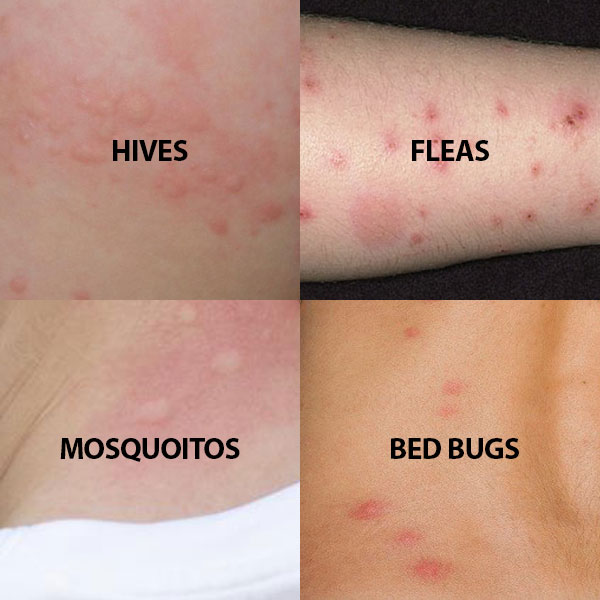Debunking the Myth: Can Bed Bugs Invade Your Body?

Do you ever wake up with itchy bites and wonder if bed bugs could actually be burrowing beneath your skin? The thought of these tiny pests invading our bodies can be unsettling. This article dives deep into the truth about bed bugs and addresses the question: can bed bugs get inside your body?
The good news is that, unlike some parasites, bed bugs do not live inside the human body. They are ectoparasites, meaning they feed on the outside of their host. While they bite to feed on blood, they don't burrow under the skin or lay eggs inside us. The discomfort they cause is primarily from their bites and the subsequent allergic reactions some people experience.
Understanding bed bug behavior is key to dispelling fears about internal infestation. Bed bugs are nocturnal creatures, preferring to feed during the dark hours when their hosts are asleep. They are attracted to the warmth and carbon dioxide we exhale. After feeding, they retreat to their hiding places, which are typically in crevices and cracks near the bed.
While the idea of bed bugs entering your body might stem from the intense itching their bites can cause, this sensation is a reaction to their saliva. Their saliva contains anticoagulants and anesthetics that allow them to feed without being noticed. However, these substances can trigger an allergic reaction in some individuals, leading to intense itching, redness, and welts.
The history of bed bugs and humans is a long one. They have been pesky companions for centuries, and while their presence isn't a sign of uncleanliness, infestations can be challenging to eradicate. Addressing a potential infestation quickly is crucial to prevent the problem from spreading.
It is important to distinguish between the myth of bed bugs entering the body and the reality of their bites. While they don't burrow under the skin, their bites can be a nuisance and cause significant discomfort. The itching can lead to scratching, which can sometimes result in secondary skin infections if not properly managed.
A common misconception is that bed bugs only infest dirty environments. However, this is untrue. They can infest any home, regardless of cleanliness. They are often transported via luggage, furniture, or clothing.
One frequent question is: Do bed bugs transmit diseases? While they can bite multiple times and cause skin irritation, they are not known to transmit diseases to humans.
Another concern is whether bed bugs can infest pets. While they primarily feed on human blood, they can bite animals if human hosts are unavailable. However, they are not likely to infest animal fur or live on pets.
Preventing bed bug infestations involves regular inspection of mattresses, bedding, and furniture, especially after travel. Using mattress encasements and vacuuming frequently can also help prevent infestations.
Dealing with bed bugs requires vigilance and often professional pest control. Identifying signs of an infestation, such as small blood stains on sheets or dark fecal spots, is essential for early intervention.
Advantages and Disadvantages of Understanding Bed Bug Behavior
| Advantages | Disadvantages |
|---|---|
| Reduced anxiety related to the myth of internal infestation | Increased awareness of bed bug bites can lead to heightened anxiety about infestations |
| Better understanding of prevention methods | Misinformation can lead to ineffective treatment methods |
Here are some frequently asked questions:
1. Can bed bugs fly? No, bed bugs do not have wings and cannot fly.
2. Can bed bugs jump? No, they can crawl quickly but cannot jump.
3. What do bed bug bites look like? They often appear as small, red, itchy bumps, sometimes in a line or cluster.
4. How do I get rid of bed bugs? Professional pest control is often the most effective method.
5. How can I prevent bed bugs while traveling? Inspect hotel mattresses and luggage carefully.
6. Can I treat bed bugs myself? While DIY methods exist, professional treatment is usually more effective.
7. Are bed bugs resistant to pesticides? Some bed bug populations have developed resistance to certain pesticides.
8. How long can bed bugs live without feeding? They can survive for several months without a blood meal.
In conclusion, while the idea of bed bugs getting inside your body can be unsettling, it's important to remember that they are external parasites. They feed on blood but don't live within us. Understanding their behavior, knowing how to identify bites, and taking preventive measures can help alleviate anxieties and effectively manage potential infestations. By addressing the myths and focusing on the facts, we can approach bed bug control with informed strategies and peace of mind. Don't let the fear of internal infestation keep you up at night. Educate yourself about these pests and take proactive steps to protect your home. If you suspect an infestation, contact a qualified pest control professional for effective treatment and prevention advice.
Ac condensation pumps the secret to a dry and efficient cooling system
Decoding the viral danca do ya ya mijo ya phenomenon
Decoding mark levys financial success













